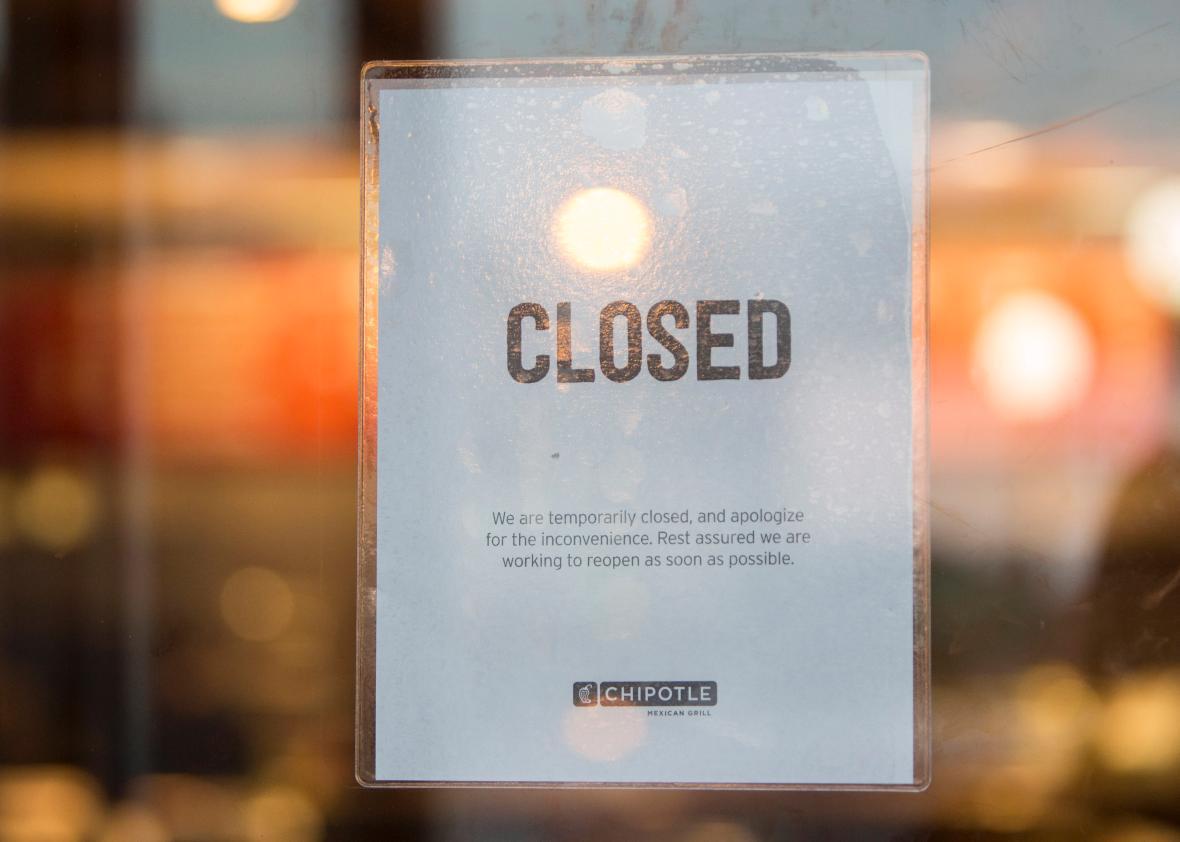After two major outbreaks of foodborne illness, Chipotle has apologized to customers and promised to put aggressive new safety measures in place. So far, the show of humility appears to be working: After the apology on Thursday, Chipotle’s stock price, which had dropped 19 percent this year, jumped more than 5 percent, Reuters reported.
Earlier this month, as many as 141 Boston College students came to their health services center complaining of the classic symptoms of norovirus: vomiting, diarrhea, stomach cramps. At least 91, including eight members of the college’s basketball team, were tested and found to be infected. The source of the virus seems to be Chipotle.
In a separate incident in October, 52 people across multiple states in the Pacific Northwest came down with E. coli infections linked to the chain.
“This was a very unfortunate incident and I’m deeply sorry that this happened,” founder and co-CEO Steve Ells told NBC in regard to the Boston outbreak. “But the procedures we’re putting in place today are so above industry norms that we are going to be the safest place to eat.” Ells added that the Boston restaurant, which has since been temporarily shuttered, would be completely sanitized and all of its employees tested for norovirus before reopening.
Norovirus, the most common source of foodborne illness, is a miserable bug that can strike you down with diarrhea, vomiting, and fever for days on end. The virus is resilient and highly contagious, passing not only through food but also through any surface that has been contaminated. At least 12 students at Boston College who had not patronized the restaurant also came down with symptoms.
The chain had faced criticism for its lackluster response to the outbreaks in the past. Previously, Ells had said that Chipotle would try to work with at least some of its small suppliers to institute better safety measures, but that not all would be on board. That didn’t appear to be enough: In an online CNBC poll, 53 percent of respondents said they were less likely to eat at Chipotle in light of the incidents.
Chipotle has long been aware of the risk of an outbreak, meaning that it has had time to prepare for how to respond to just this kind of incident. From its 2013 annual report (emphasis mine):
Instances of food-borne illnesses, real or perceived … may subject us to liability to affected customers, and could result in negative publicity about us or the restaurant industry that adversely affects our sales. For instance, on a small number of occasions a Chipotle restaurant has been associated with customer illness, and on those occasions our sales have been adversely impacted, at times even in markets beyond those impacted by the illness.
We may be at a higher risk for food-borne illness outbreaks than some competitors due to our use of fresh produce and meats rather than frozen, and our reliance on employees cooking with traditional methods rather than automation. If our customers become ill from food-borne or localized illnesses or if an illness is attributed to our food, even incorrectly, we could also be forced to temporarily close some restaurants.
Chipotle is now promising to thoroughly review and test all ingredients for safety, undergo more frequent audits, and develop “rigorous in-restaurant protocols to ensure that our teams understand and implement our updated food safety practices.” Here’s hoping it’s not too late to say sorry.
